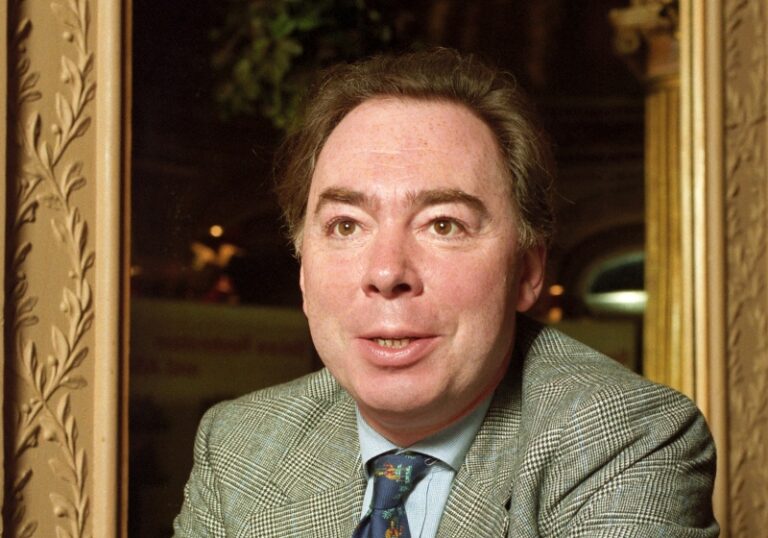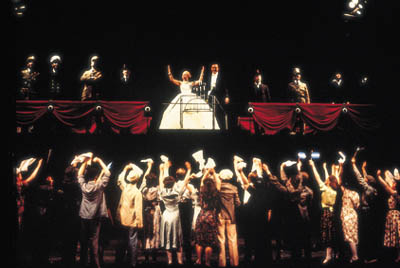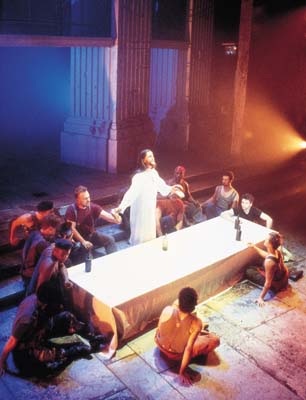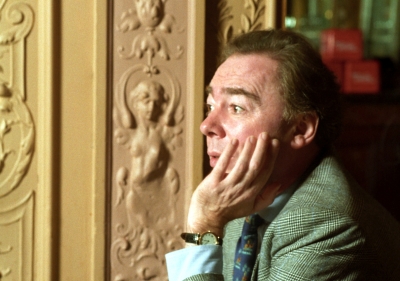The 7th
LaureateMusic
Andrew Lloyd Webber

Andrew Lloyd Webber is one of the best-known composers in the world. Joseph and the Amazing Technicolor Dreamcoat,Evita,Cats and Phantom of the Opera are among the most successful musicals ever composed,and entire nations of children have grown up taking part in or being awed by productions of his work. This immense popular success is the result of an understanding of how to make music intimate to the listener whilst at the same time being publicly and commercially oriented. In the 1990s,more than half the tickets sold on Broadway were for Lloyd Webber productions; in all,well over one hundred million people have seen his shows,a phenomenon that even the most celebrated pop stars would find hard to equal.
Biography
Andrew Lloyd Webber is in the rare position of being critically bullet-proof. His success has been such that he has become a tourist attraction in New York. He has been honoured with a peerage,becoming Lord Lloyd-Webber of Sydmonton. He is among the few living British composers known to almost everyone in his native land. He is able to move between popular and traditional forms of music with ease. He has an acute understanding of how to make music intimate to the listener whilst at the same time being publicly and commercially oriented.
The key to Lloyd Webber’s appeal is a direct,approachable way of writing and a multiplicity of musical styles within each show. Joseph and the Amazing Technicolour Dreamcoat,1968,with libretto by Tim Rice,was his first musical and it sets down a blueprint for his future work. Originally written as a short piece for a school concert,it underwent several reworkings,each of which lengthened and developed the show. Part of a trend at the time for shows with Christian-influenced plots,Joseph was designed to be straightforward for young audiences to perform and appreciate. It has since been performed in most English-speaking countries across the world.
The success of Joseph led Lloyd Webber to create musicals first as albums. The double album of the next show,Jesus Christ Superstar,sold healthily for two years before the show was ever staged. The show opened in 1971,taking $1,300,000 in its first week,and became,at eight years,the longest-running musical ever at that time. Subsequent musicals,such as Evita,1976,Cats,1981 and Phantom of the Opera,1986,followed the album-show pattern.
A feature of many of the tunes in these musicals is an evocation of melodies from classical music. For example,the tune of Memory,from Cats,contains echoes of the theme of Ravel’s Bolero. This is generally recognised only subliminally by the listener,since the changes to the tempo,accompanying harmony,and musical feel of the song all remove any suggestion of direct quotation. Rather,the melody suggests a memory of the source. This particular song has been covered more than 600 times and Cats is now the most profitable musical in history.
Lloyd Webber was born in 1948 into a musical family. His father was a composer of religious music,an organist and choirmaster,and Professor of Composition and Harmony at the Royal College of Music,and his brother Julian is a leading cellist. The religious background contributed directly to his Requiem,1985. Its theme is the manipulation of children in war,and it was written in response to a horrific news report about a child in Cambodia forced to choose between killing his mutilated sister or being killed himself. There is a strong tradition in British music of linking meditations on war and religious ideas,Benjamin Britten’s War Requiem being perhaps the most celebrated example. Lloyd Webber’s contribution is stylistically conservative but typically direct,movements such as the famous Pie Jesu speaking affectingly to audiences since its première. Apart from classical music,the other major influence on Lloyd Webber was the American musical,in particular Rodgers & Hammerstein’s South Pacific,1949,the film of which he saw a dozen times in his youth.
Phantom of the Opera is generally regarded as Lloyd Webber’s best score. Based on the 1910 novel by Gaston Leroux,it inhabits a musical hinterland between opera and the musical which parallels the subterranean life of its hero. The music is tonally integrated,which gives the show a feeling of stylistic consistency and hence operatic dimensions. At the same time,individual songs can be successfully extracted from the score without losing identity. Critical and popular opinion were united about this show: it was awarded a Tony and the Evening Standard Drama Award for Best Musical,whilst the cast album went platinum in 10 days and the show took $16 million in advance sales on its opening in New York.
In the 1990s,more than half the tickets sold on Broadway were for Lloyd Webber productions. Well over one hundred million people have seen his shows,and box office takings for the shows have exceeded $4 billion. Starlight Express,1984,was the most expensive musical ever staged in Britain,with the Apollo Victoria theatre rebuilt specially for the production,at a cost of nearly £1.5 million. It also uses the largest set ever constructed in a London theatre,and yet it has handsomely repaid the investment and continues to run in the West End. Sunset Boulevard,1993,took £5 million in advance bookings and in Wiesbaden a theatre was built specially and exclusively for the show. Phantom of the Opera has played over 27,000 performances in 60 cities worldwide,and has grossed over $1.5 billion. Andrew Lloyd Webber’s success and popularity are second to none.
Andrew Hugill
Chronology
By Jeeves (re-write of the 1975 show)
Bought the Stoll Moss Group (10 theatres,including the London Palladium and Theatre Royal,Drury Lane)
-

Evita, 1976
-

Jesus Christ Superstar, 1981
-

Starlight Express, 1984
-

©The Sankei Shimbun

